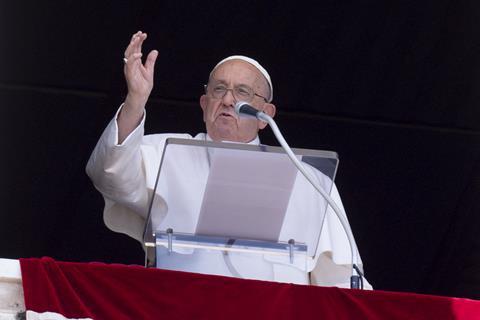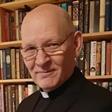The Catholic Church’s teaching on sexuality shows no signs of fundamentally changing, and the media are wrong to expect it to, says Michael Coren. Reports the Pope has again used a gay slur in a closed door meeting prove it

For someone who is described by friend and foe alike as a progressive and a liberal, Pope Francis does have habit of sounding quite the opposite.
Last week he was accused of once again using a vulgar and offensive term for LGBT people. At a private meeting with local priests in Rome on Tuesday he allegedly spoke of “an atmosphere of faggotry” at the Vatican.
This comes just weeks after he used the same word - frociaggine - when speaking of Roman Catholic seminaries. There is, he said then, “too much faggotry” in them.
In spite of the usual papal apologists rushing forward to offer the defence of “mistranslation” and “context” it was quite clear what the word means, to the point that the Vatican released an official statement after the first use of the word, explaining that the Pope, “offers his apologies to those who felt offended by the use of the term”. Which includes, I would hope, almost everybody, whatever their sexuality.
One has to wonder what would have happened if a mainstream evangelical leader or an Anglican bishop, let alone a politician, had used such abuse, and then had the audacity to repeat it.
But the greater point is that these incidents once again expose the genuine nature of the Vatican’s approach to sexuality. In brief, it is orthodox and historic, and shows no genuine signs of fundamentally changing. Understandably, those who want the Catholic Church to reform have embraced anything Francis has said that has given the appearance of a new approach. For example, in 2013 in a media scrum during a flight, Francis famously said, “If a person is gay…who am I to judge?”. This led to speculation that the Roman Catholic would now open its doors to same-sex weddings and full affirmation of openly gay people, but it was nothing of the sort. Francis was almost certainly referring to a particular priest who had rejected rather than lived his homosexuality. If anything, the Pope was confirming traditional Catholic teaching.
In the book The Strength of a Vocation, based on an extended interview with the Spanish priest Fr. Fernando Prado, Francis said that homosexuality in the priesthood is “something that worries me” and a “very serious” question. He also insisted that gay priests who cannot maintain their vows of celibacy should leave the priesthood rather than live “double lives,” and that gay men ought not to be allowed to enter seminaries if their homosexuality is “deep seated.” He went on to describe homosexuality as being “fashionable,” and that such a culture had now entered the Roman Catholic priesthood. That’s hardly compromising stuff.
between a quarter and a half of all Roman Catholic clergy are gay
The Catholic catechism also states that “homosexual acts as acts of grave depravity” are “contrary to natural law,” and that “homosexual acts are intrinsically disordered.” It’s cold and clinical, but while most Catholics might not read the full catechism, this is still the teaching of their church.
But there’s also a blistering tension. Most credible studies around the subject have concluded that between a quarter and a half of all Roman Catholic clergy are gay. In the 2000 book The Changing Face of the Priesthood, Father Donald Cozzens goes far as to argue that as many as 58 per cent of priests are gay, and that percentages are even higher for younger priests.
Francis can’t be unaware of this reality, and neither are those around him. That means that the Vatican has to balance numbers against doctrine. That can lead to ostensibly surprising decisions. Last year, much to the chagrin of some in the Roman Catholic church, the pontiff officially allowed blessings of same-sex couples. But he immediately stressed that these blessings weren’t to take place within a church ritual or liturgy and that the decision to conduct them was to be left to “the prudent and fatherly discernment of ordained ministers.” There have been very few uptakes. Francis has also given his backing to various LGBT ministries and seems, when he’s not using regrettably hurtful slang, to have a deep care and compassion for the gay community.
At one level, Pope Francis seems to exhibit numerous contradictions and inconsistencies, perhaps partly explained by the fact that he’s 87 years-old, in poor health, and just like any other world leader sometimes speaks without thinking. A more generous interpretation is that he’s trying as a Christian to be welcoming and accepting of individual people without being affirming and accepting of all that those people believe or how they behave. If that is the case, there’s really nothing very much that is new to see here. But I guarantee that nobody on either side of the debate will want to hear that for even a moment.






































2 Readers' comments